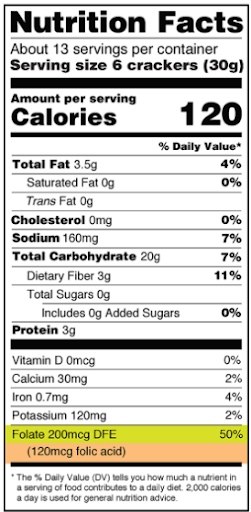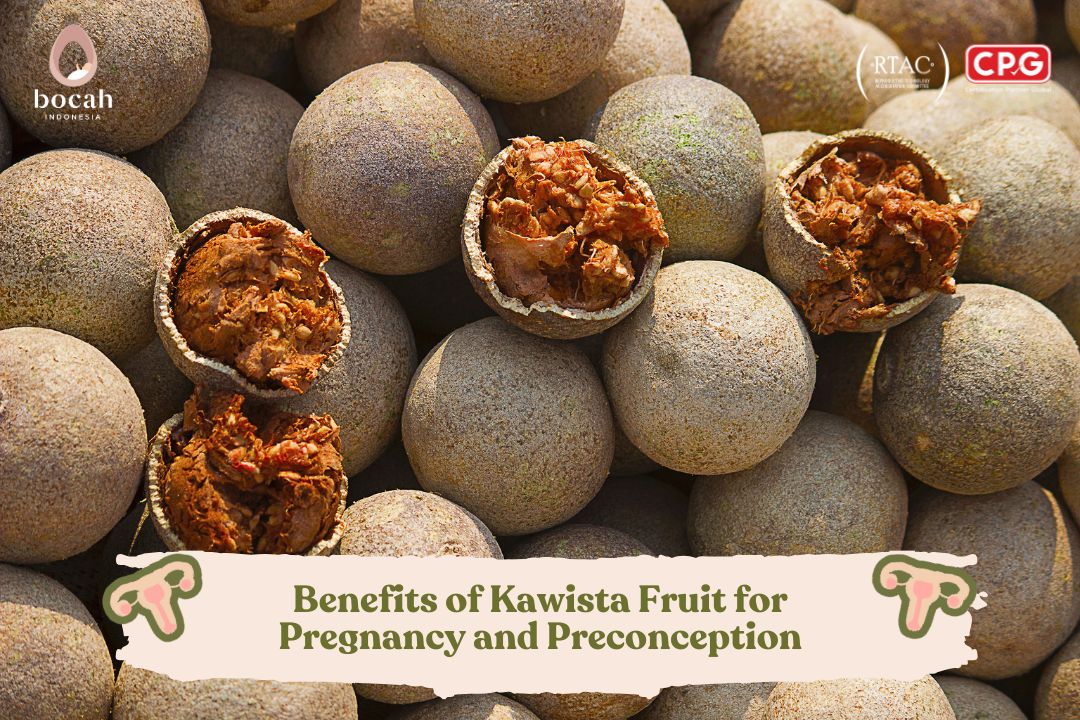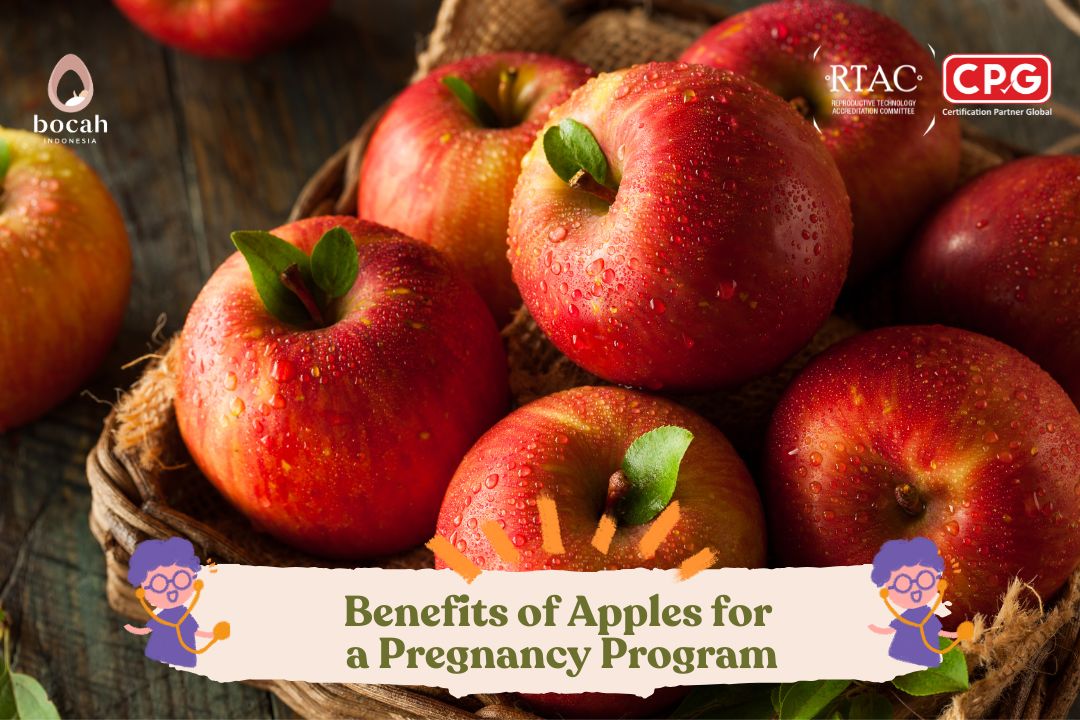The Benefits of Folate and Achieving Accurate Results

Adequate folate intake is crucial during periods of rapid growth such as pregnancy, infancy, and adolescence.
Folate, or vitamin B-9, plays a vital role in the formation of red blood cells and the growth and function of healthy cells. This nutrient is particularly important during the early stages of pregnancy, primarily to reduce the risk of birth defects in the brain and spinal cord.
As a natural form of vitamin B9, folate is primarily found in dark leafy greens, legumes, and nuts. Folate-rich fruits include oranges, lemons, bananas, melons, and strawberries. The synthetic form of folate is known as folic acid and is an essential component of prenatal vitamins and is contained in various fortified foods such as rice, pasta, bread, cereals, and juices.
The Functions of Folate in the Body
The terms “folate” and “folic acid” are often used interchangeably, although they are different. Folate is a general term for various types of vitamin B9. The term “folate” itself comes from the Latin word “folium,” which means leaf, as folate was first isolated from spinach leaves.
In the body, both folate and folic acid are converted into an active form called levomefolic acid or 5-methyltetrahydrofolate (5-MTHF). This active form of folate performs several important functions, including:
Tanya Mincah tentang Promil?
- Assisting in the formation of genetic material in cells, namely nucleic acids (DNA and RNA), during periods of rapid growth such as pregnancy, infancy, and adolescence.
- Breaking down the amino acid homocysteine, which can have detrimental effects on the body when its levels are high.
- Producing healthy red blood cells.
- Producing an adequate quantity of high-quality sperm.
Studies have found that in the body, folic acid is absorbed better than folate, at 85% compared to 50%, respectively. Therefore, folic acid (in supplement form) should be consumed regularly to maintain sufficient and stable levels in the blood.
Benefits of Folate During Pregnancy
During pregnancy, folic acid is essential for supporting the development and growth of fetal nerve cells. A deficiency of folic acid, especially in the first 12 weeks of pregnancy, has been proven to increase the risk of neural tube defects, a type of birth defect affecting the brain and spinal cord.
Other benefits of folic acid during pregnancy include:
- Reduced risk of congenital heart defects.
- Reduced risk of premature birth and low birth weight babies.
- Reduced risk of miscarriage. However, further research is still needed in this area.
Benefits of Folic Acid for Successful Pregnancy
For couples trying to conceive, the sufficiency of this nutrient affects the fertility of both women and men.
Folic Acid and Female Fertility
Folic acid can have a significant impact on female fertility, both before and after conception. For women facing difficulty getting pregnant, folic acid can help prevent early pregnancy complications that may lead to miscarriages.
Moreover, as mentioned earlier, folic acid aids in the metabolism of cells throughout the body, including in women’s ovaries. In a study of women undergoing in vitro fertilization (IVF), it was found that the use of folic acid supplements in this group helped optimize the homocysteine pathway in the follicular fluid of egg cells. This is associated with better embryo quality and increased chances of getting pregnant.
Folate also plays a crucial role in regulating stress and inflammation in the body. Increased stress levels generally result in the body requiring more folate. Stress factors, such as older maternal age and smoking habits, can affect a woman’s ability to conceive. Getting an adequate amount of folate from food or supplements can help combat this stress.
Folic Acid and Male Fertility
Folic acid and zinc are often marketed together as supplements to enhance male fertility. Many studies have examined the effects of these supplements. However, the results are still inconclusive, especially for healthy male groups. Nevertheless, for men with fertility problems, some studies support the idea that folic acid supplements can improve male fertility.
In 2002, a study looked at 108 fertile men and 103 men with fertility issues. Each participant in both groups was given 5 mg of folic acid and 66 mg of zinc daily for 6 months. The results showed an increase in sperm count by up to 74% in the group of men with fertility issues.
A review of 7 clinical trials on men with fertility problems also indicated that men who consumed daily supplements of folic acid and zinc had better sperm quantity and quality compared to those who took a placebo.
Similarly, a study involving 64 men with infertility who took daily supplements containing vitamin E, selenium, and folate found that these men experienced a significant increase in sperm count and motility compared to those who took a placebo.
However, some studies have not found any effect of folic acid and zinc on male fertility. For instance, a recent study on 2,370 men with infertility concluded that daily supplements containing 5 mg of folic acid and 30 mg of zinc did not significantly improve sperm quality or fertilization success.
Because the results of studies are still mixed, more extensive research with larger sample sizes is needed to determine if the combination of folic acid and zinc truly improves male fertility.
How to Get Adequate Folate
Adequate folate intake can be obtained from folate-rich foods. The following types of foods are good sources of folate:
- Liver
- Dark leafy green vegetables (spinach, lettuce, broccoli, asparagus, kale, Chinese broccoli)
- Legumes and nuts
- Sunflower seeds
- Fresh oranges or orange juice (100% pure juice)
- Whole grains (wheat, rye)
- Beets
- Seafood
- Egg yolks
- Milk and dairy products
However, it can be challenging to meet folate requirements through food alone. Therefore, it is recommended to take folic acid supplements or multivitamins daily.
When consumed in supplement form, the recommended daily dose of folic acid is as follows:
- Men and women aged > 14 years: 400 mcg
- Pregnant women: 600 mcg
- Breastfeeding women: 500 mcg
Some important notes regarding folic acid supplementation:
- Folic acid supplementation during pregnancy should begin 1-3 months before conception and continue throughout pregnancy.
- Women who have previously given birth to children with neural tube defects should take 4 mg of folic acid daily, starting 3 months before pregnancy and during the first 3 months of pregnancy.
- Individuals who regularly consume alcohol should take a minimum of 600 mcg of folic acid per day because alcohol can interfere with its absorption.

To determine if a vitamin supplement contains folic acid, check the supplement facts label. This label is usually located on the back of the bottle. Look for the terms “folate” or “folic acid” to find out the amount of folic acid per serving. The supplement facts label provides the following information:
- Serving size: This section informs you about the number of supplement units (capsules/softgels/tablets) in one serving or one dose. One unit is typically one serving.
- Servings per container: This section informs you how many servings are in one bottle of supplements. For example, if one serving equals 2 tablets, and the bottle contains 60 tablets, that means there are 30 servings in one bottle of supplements.
- Nutrient content, such as folate, calcium, and other vitamins, in each serving (daily value or DV). For example, if the DV of folic acid in a multivitamin supplement is 50%, then the supplement provides you with 50% of your daily folic acid needs.
Vitamin supplement labels now include “mcg DFE of folate,” which stands for dietary folate equivalent. This is the amount of folate absorbed by the body. If one serving contains less than 400 mcg DFE of folate, it means you need to consume more than one serving to meet your daily folate requirements.
Are There Risks Associated with Folic Acid Supplements?
Folate consumption from food very rarely reaches levels that cause poisoning. However, folic acid supplement consumption is not harmful as long as it does not exceed a dose of 1,000 mcg per day.
Above this dose, folic acid can have adverse effects, including:
- Masking vitamin B12 deficiency, which can cause permanent nerve damage if not detected early. If there are indications, the doctor will first check the levels of vitamin B12 in the blood before prescribing high-dose folic acid supplementation.
- Disrupting sperm DNA formation.
- Reducing the effectiveness of some medications when taken together, including the antiepileptic drugs phenytoin and phenobarbital, the cancer drug methotrexate, and the antimalarial drug pyrimethamine.
Conclusion
Folic acid is a crucial vitamin for both men and women. Getting enough folic acid can reduce the risk of birth defects and improve the fertility of both men and women. For optimal effects, discuss folic acid supplementation with your doctor before starting. Also, be sure to inform your doctor about any other medications and supplements you are taking.
Source:
- American College of Obstetricians and Gynecologists. [Last updated June 2023]. FAQ001. Nutrition during pregnancy. URL: https://www.acog.org/womens-health/faqs/nutrition-during-pregnancy.
- Ardestani Zadeh A, Arab D, Kia NS, Heshmati S, Amirkhalili SN. The role of Vitamin E – Selenium – Folic Acid Supplementation in Improving Sperm Parameters After Varicocelectomy: A Randomized Clinical Trial. Urol J. 2019 Oct 21;16(5):495-500. doi: 10.22037/uj.v0i0.4653. PMID: 30798568.
- Combs Jr GF, McClung JP. The vitamins: fundamental aspects in nutrition and health. Academic press; 2016 Dec 15.https://www.nutri-facts.org/en_US/nutrients/vitamins/b9.html
- Folic acid: Patient drug information. In: UpToDate Irani M, Amirian M, Sadeghi R, Lez JL, Latifnejad Roudsari R. The Effect of Folate and Folate Plus Zinc Supplementation on Endocrine Parameters and Sperm Characteristics in Sub-Fertile Men: A Systematic Review and Meta-Analysis. Urol J. 2017 Aug 29;14(5):4069-4078. PMID: 28853101.
- March of Dimes. [Last reviewed May 2020]. Folic acid. URL: https://www.marchofdimes.org/find-support/topics/pregnancy/folic-acid.
- Mayo Clinic. [Last updated August 10, 2023]. Folate (folic acid). URL: https://www.mayoclinic.org/drugs-supplements-folate/art-20364625#:~:text=Folate%20(vitamin%20B-9),%2C%20beans%2C%20peas%20and%20nuts.
- Schisterman EF, Sjaarda LA, Clemons T, Carrell DT, Perkins NJ, Johnstone E, Lamb D, Chaney K, Van Voorhis BJ, Ryan G, Summers K, Hotaling J, Robins J, Mills JL, Mendola P, Chen Z, DeVilbiss EA, Peterson CM, Mumford SL. Effect of Folic Acid and Zinc Supplementation in Men on Semen Quality and Live Birth Among Couples Undergoing Infertility Treatment: A Randomized Clinical Trial. JAMA. 2020 Jan 7;323(1):35-48. doi: 10.1001/jama.2019.18714. Erratum in: JAMA. 2020 Mar 24;323(12):1194. PMID: 31910279; PMCID: PMC6990807.
- Wong WY, Merkus HM, Thomas CM, Menkveld R, Zielhuis GA, Steegers-Theunissen RP. Effects of folic acid and zinc sulfate on male factor subfertility: a double-blind, randomized, placebo-controlled trial. Fertil Steril. 2002 Mar;77(3):491-8. doi: 10.1016/s0015-0282(01)03229-0. PMID: 11872201.










